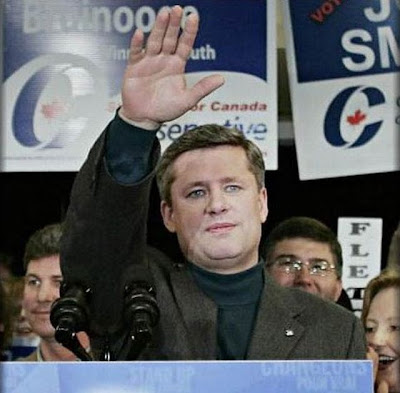The North American right wing has been overtaken by a vile hateful
Donald Trump inspired populist MAGA movement that has spawned the
Freedumb Convoy types and infected the Canadian Conservative Party
and what was once a principled conservative tradition in Canada,
although you have to go back awhile to the former Progressive
Conservative Party to find it.
Canada has long had a form of populism of it’s own within the
Liberal Party but a much more benign form. Intent on maintaining it’s
position as the “natural governing party” the Liberals focused
their policies on what would be popular with voters, tending to
“campaign from the left and govern from the right” with policies
just progressive enough to get them elected without upsetting the
financial powers that be that actually run the country.
The New Democratic Party has often been criticized for being too
ideological but in truth that was it’s strength, being a party of
social democratic principles. But it seems that it is now embracing a
populism of sorts. Instead of pursuing a comprehensive social
democratic platform it seems to be taking a series easy unfocused pot
shots at the both the Liberals and Conservatives. At the same time it
tries to convince the Liberals to adopt what it sees as popular
polices and take credit for them, leaving them open to the
description “Liberals in a hurry”, long decried by those of us on
the left.
What is the solution. It has been over 60 years since the NDP was
founded in 1961 by the Co-operative Commonwealth Federation (CCF) and
the Canadian Labour Congress (CLC) and over 90 years since The CCF
was founded in 1932 by a number of socialist, agrarian,
co-operative, and labour groups and the League for Social
Reconstruction. Is it time for a rebirth.
Social democracy may be at the heart of the NDP but Canada’s social
movements have been it’s soul. Is it time for Canada’s social
movements (labour, environmental, indigenous rights, anti-poverty,
fair taxation, public health care, women’s liberation, pro choice,
LBGTQ+, anti war, etc.) to come together to birth a new Social
Democratic Party for Canada, that will fight a principled fight for a
better Canada for all.
What will this party stand for. That will of course be up to the
party but I do have some ideas for some founding priorities.
The first priority must be electoral reform because if democracy is
not working neither is anything else. We need an electoral system
that provides for local representation as well as a House of Commons
membership that reflects the philosophical positions of the voters as
expressed in the total votes for each party. There are several
variations of Proportional Representation that do this. My personal
preference is Mixed Member Proportional (MMP).
The next priority must be tax reform, with a progressive income tax
system where the wealthy and corporations pay their fair share.
Without fair and adequate taxation government cannot fulfill its
responsibilities to the people including public health care, the
social safety net, and addressing income and wealth inequality.
The new party must also commit to completing the public health care
system to include pharmacare, mental health care, dental and vision
care, and long term care. This must include returning to 50% federal
funding as the only way to ensure the provinces live up the the
Canada Health Act is the federal spending power. Tax points that can
be used to subsidize the oil and gas industry, provide benefits to
land developers or bribes to voters will not save our health care
system.
The last on my last, but far from the last of the policies the Social
Democratic Party must adopt, is an industrial strategy designed to provide for sustainable development and fight climate change by
creating good paying long term unionized jobs.
Indeed it is time for a rebirth.



